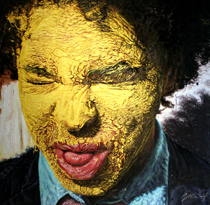Poetry After 9/11: An Anthology of New York Poets
Eds. Dennis Loy Johnson, Valerie Merians
Brooklyn, NY: Melville House, 2011
128 pp. $17
The April 15, 1912, sinking of the Titanic is memorialized in the name of the ship; no one goes around saying, “4/15,†as shorthand for that disaster. Yet, the horrific terrorist attacks of September 11, 2001, on the U.S., have been memorialized as a date, “9/11,†an utterance so abstract as to be vacuous. Back then, we were told, “The world changed today.†11 years later, we see that idea was exaggerated: official war and unofficial terror plague us still, and governments still spy on us—and lie to us, Wikileaks notwithstanding. Yet, in the wake of the attacks, people reached for poetry to better fathom – viscerally – the gravity of events as well as to find solace. In poetry, there is truth that cuts through propaganda, even that dished up as “news.†Thus, soon after the World Trade Centre’s tallest towers were smashed into, set aflame, and collapsed, there appeared Poetry After 9/11: An Anthology of New York Poets.
Edited by Dennis Loy Johnson and Valerie Merians, the 10th anniversary edition is now available. Herein poets try to identify the heartfelt repercussions and resonances of deliberate brutality. The editors note, “The ashes have blown away; the poems have not.†Verse remains pertinent because “â€There (is) something more to be said that only poetry (can) say.†The volume opens with a 1996 poem by David Lehman, in which his speaker explains how he detested the Twin Towers until they sustained a truck-bomb attack, in 1993. Afterward, for him, “the buildings became / A great symbol of America, like the Statue / of Liberty at the end of Hitchcock’s Saboteur.†The poem is prophetic about the blind, violent patriotism that the later suicide attacks unleashed.
Norman Stock’s 2001 poem, “What I Said,†strips away all the judicious, causa bella rhetoric to reveal the human lust for revenge: “I said and I said this is too much to take no one can take a thing like this / after the terror yes and then I said let’s kill them.†Eliot Katz’s “When the Skyline Crumbles,†captures the horror of the Ground Zero murders, suicides, blasts, sirens, massive smoke clouds, jetting flames, debris fields, and “smoke that torched bodies now tangibly coating tongue & nostrils, dust burning all 3 eyes†and of how “the one-eyed giant Terror / … eats its innocent victims screaming alive, feet flailing… / how it burns a skyline of fresh bones to fragile white ash….†Nikki Moustaki also recalls vividly the violence: “Don’t say the air smelled like smouldering desks and drywall, / Ground gypsum, and something terribly organic…. / Remember, you’re writing with ashes.†Patricia Spears Jones wonders, “In what cinema are the dreams of mass destruction / so dear as ours?â€
These poems often invoke New Yorker Walt Whitman’s humanism, but also brother “Appler†Allen Ginsberg’s apocalyptic sensibility in “Howl†(1956). Thus, Frank Lima’s “Good Morning America†preaches, a la Ginsberg, “the blood of the dead / Hangs in space…. / Freedom is the dramatic dislocation of evil.†Bill Kushner’s poem, “In the Hairy Arms of Whitman,†announces, “I am angry poet Whitman flying at the fragments flying papers ash flesh… / I am gorgeous Whitman in drag I am Whitman the solemn President / In the White House calling all the armies Come back….†“9/11†leads to, then, the War on Terror and the “Shock and Awe†awfulness of 3/23/03, when President G.W. Bush launched his multiply-thousands-slain invasion of Iraq.
Paul Violi’s lyric makes this equation – prophesizes it, suggesting that the “House of Xerxes†is an haute couture business, that history is a fashion show of slaughterers: “The Sacae! / Scythians with a scowl. / Plenty of flounce and pout but somehow / It all spells powerhouse.†Check out the Thracians: “Javelins, bucklets, small daggers. / Fox-skin caps, colourful tunics, / Fawn-skin boots, wooden helmets, / You just know how great / Their gorgeous garb makes them feel.†David Trinidad links “9/11†and “4/15â€: “Think Titanic: British luxury passenger liner // that sank on the night of Apr. 14-15, 1912 / after crashing into an iceberg….†The connection is in how pop culture trivializes disaster. Good poetry forces us to account for the tragic consequences of Tragedy.






Hi Professor Clarke,
It’s been a long time since Modern Canadian Poetry! I wanted to ask you a question about your opening line- perhaps it’s more about defining mystical and intellectual from a poetic perspective-
How do you define the poetry of Rumi, Hafez and other sufi poets? They defy the ‘intellectual’ term– would you call them ‘mystical’ or ‘sentimental’- or are they accessible enough to not be defined as either ‘intellectual’ or ‘mystical’, despite being rooted in a mystical tradition?
Hope you’re doing really well!